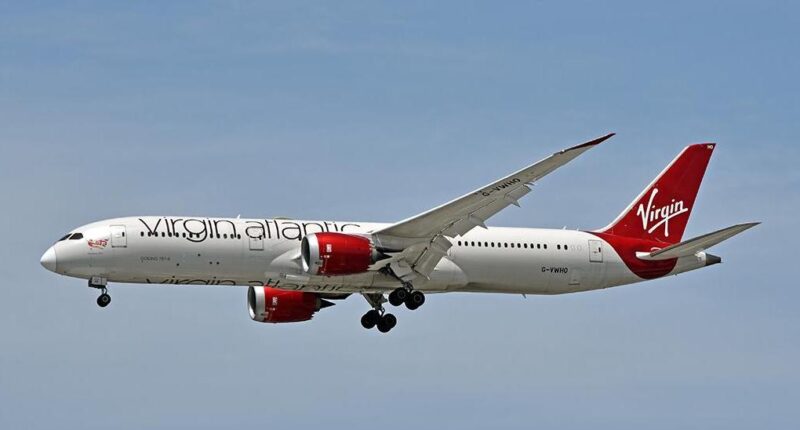Virgin Atlantic Plans Historic 100% Sustainable Aviation Fuel Transatlantic 787-9 Flight in November 2023

Virgin Atlantic is set to make aviation history with the world’s first transatlantic flight entirely powered by ‘sustainable aviation fuel’ (SAF) in November 2023. Jenny Southan reports.
This month, Virgin Atlantic and Rolls-Royce achieved a significant milestone by successfully conducting a ground test of a Rolls-Royce Trent 1000 engine powered by SAF, which boasts a carbon footprint at least 70% smaller across its lifespan compared to fossil fuel.
The upcoming flight on November 28, 2023, will see Virgin Atlantic soar across the Atlantic from London Heathrow to New York JFK aboard a Boeing 787 Dreamliner, powered exclusively by 100% SAF. The 60 tonnes of SAF required for this historic journey will be supplied by Air bp and Virent. Notably, SAF can be derived from used cooking oil and animal fat and can be blended with conventional jet fuel.
While there is a growing consensus that all flights should incorporate at least 10% SAF by 2030, critics argue that this progress may not be sufficient to combat the escalating effects of climate change. Nonetheless, proponents of SAF believe it plays a pivotal role in aviation’s decarbonization journey and the path to achieving Net Zero by 2050, where carbon emissions are offset by carbon removal.
Currently, SAF accounts for less than 0.1% of jet fuel volumes, and fuel standards permit only a 50% SAF blend in commercial jet engines. The upcoming Virgin Atlantic flight in November will serve as a groundbreaking demonstration of SAF’s potential as a 100% drop-in replacement for fossil fuels today.
Virgin Atlantic’s CEO, Shai Weiss, emphasizes the need for UK government support in establishing a UK SAF industry to enable all flights departing from the UK to operate using 100% SAF, stating, “If we make it, we can fly it.”
The realization of this 100% SAF transatlantic flight is a complex endeavor that demands collaboration across industries and dedicated project teams focused on research, testing, and operations. Virgin Atlantic leads a consortium jointly funded by the Department for Transport, featuring partners such as Rolls Royce, Boeing, the University of Sheffield, Imperial College London, and Rocky Mountain Institute. While a successful bench engine test marks a significant achievement, further permissions and safety approvals are essential to ensure the flight’s success in November.
Beyond the groundbreaking flight itself, Virgin Atlantic and the consortium plan to leverage this milestone to advance SAF utilization, address additional environmental impacts in the sector, reduce CO2 through operational efficiencies, research non-CO2 effects of flying, and conduct a comprehensive life cycle analysis of the flight. Any residual CO2 emissions will be offset through innovative carbon removal projects involving biochar.
Sources: AirGuide Business airguide.info, bing.com, Virgin Atlantic
